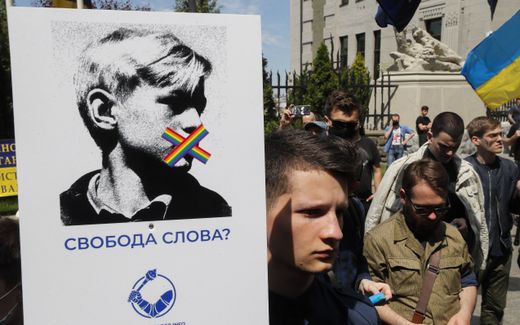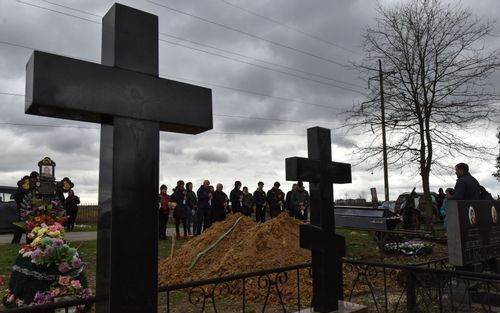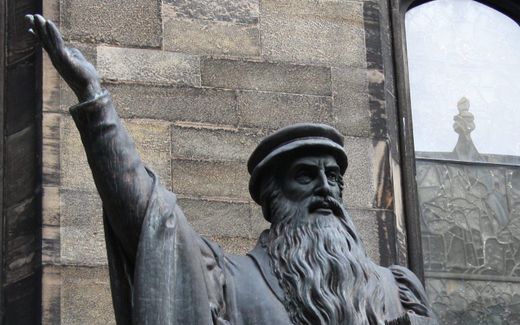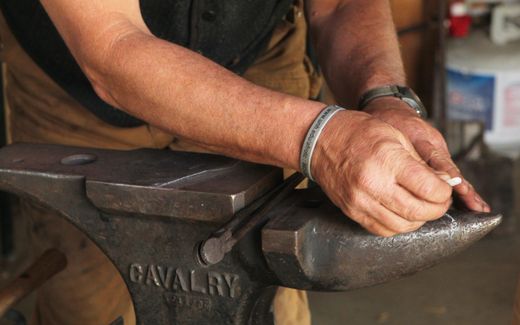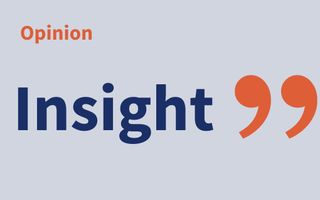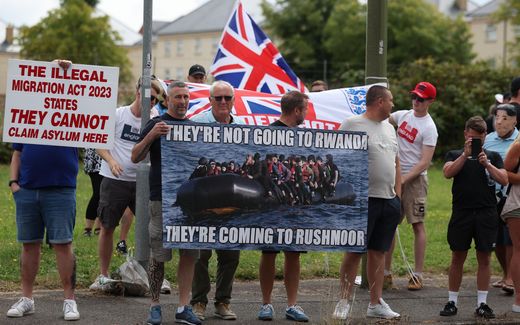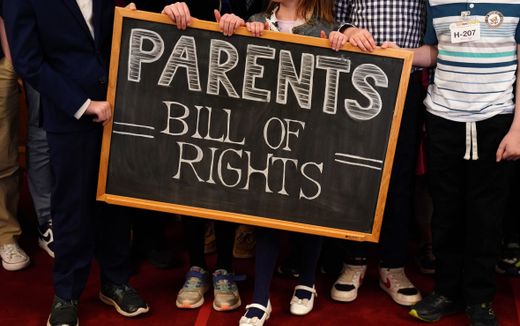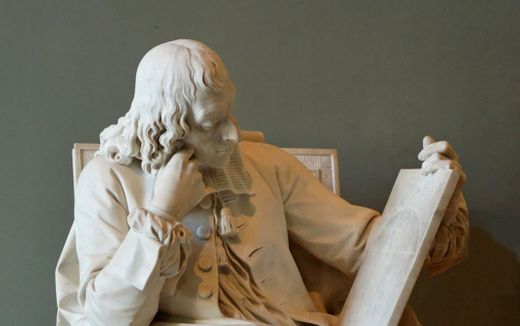Christians are a minority in Europe, what can we do?
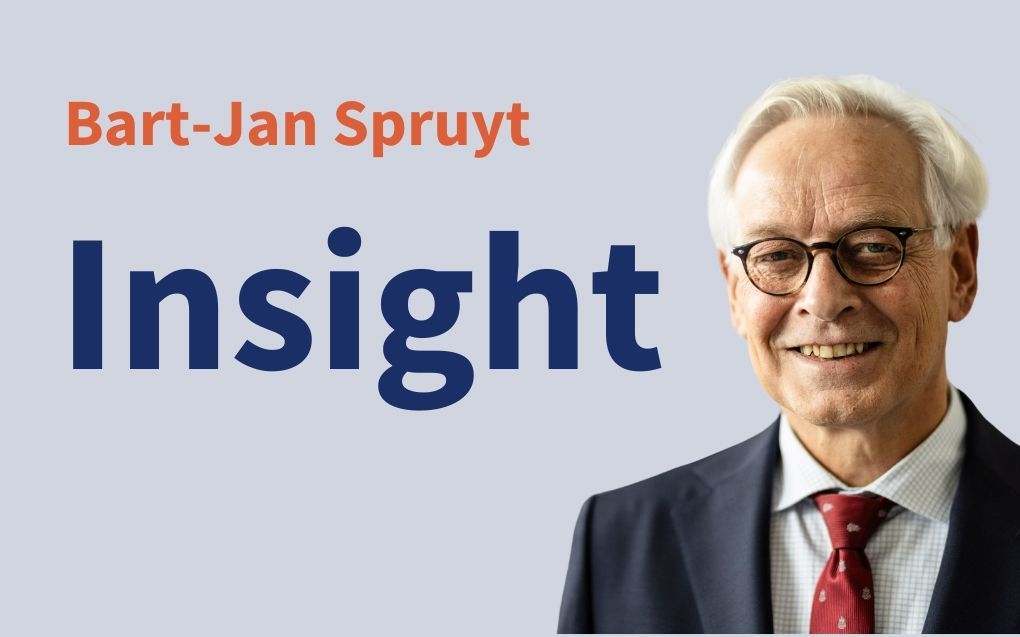
Photo CNE, André Dorst, Canva.com
Opinion
Every day, a continuing stream of news overflows us. News about conflicts with impact, like the wars in Ukraine and Gaza. And news that especially concerns Christians, about pro-life issues and the freedoms of speech, religion and education. Sometimes, all these reports overwhelm us, and we ask ourselves: What is happening in and through the events? Where does all this come from?
CNE.news starts a new series of articles focusing on the main ideas that influence policy decisions in most European, liberal countries. In this new series, "Insight", we will regularly publish articles about the ideas and convictions at work in present-day Europe.
Christian communities have become minorities, and their rights and freedoms seem to be at stake. We have reports about Christians who no longer dare to speak frankly about their convictions. We know of the restrictions on their convictions by new laws evolving from a recent theory, the Critical Theory, that results in, e.g., many laws promoting the LGBT agenda. In this worldview, Christianity is regarded as the religion of white, privileged persons with a long history of suppression and discrimination.
Christians all over Europe may be somewhat diverse in their opinions and denominational preferences. They may express their faith in many different ways, but they all will, to some extent, share a sense of predicament.
The process of secularisation may already have started at the end of the Middle Ages.
Until recently, Europe was a Christian continent, the synthesis of the religious tradition of Jerusalem and the classical tradition of Athens, that shaped Europe. The Gospel formed its art and literature, landscape, sense of freedom and responsibility, representation and democracy.
The process of secularisation may already have started at the end of the Middle Ages, but this trend was restricted to intellectual elites. At the end of the nineteenth century, most of the population was still churchgoing, believed in God and was convinced that a life according to his law was most appropriate.
More doubts
The First World War caused a profound cultural shock, the Second World War and the Holocaust raised even more doubts about the truth and benefits of the Christian faith, and the so-called revolt of 1968 was essentially a farewell to a Christian past. The faith and values of a previous generation had to make place for a new framework of freedom.
This decisive watershed happened about half a century ago, and gradually, the new convictions gained a foothold in the media and politics. The most recent fruit of this seems, among other things, legislation promoting equality.
This is to say that Christians in Europe are aware of a great and inspiring past of which they are the heirs. However, this tradition of Christian faith and the Christian way of life has relatively recently been rejected and replaced by an ideology that is averse to it in many respects.
What is left of European Christianity are small communities scattered all over Europe that have to find their way in this new situation.
Think about this: An entire continent has said farewell to the Church and its beliefs and practices. New truths are taken for granted. What is left of European Christianity are small communities scattered all over Europe that have to find their way in this new situation.
Early Church
Of course, this is no reason for despair. A feeling of loss and regret may be understandable and proper, as Christians see their faith and way of life as beneficial for all people. However, their position in society and politics, powerless and with less and less influence, can also be characterised as a return to a more or less 'natural' situation, comparable to the situation of the Early Church.
Let me tell you how this went in my own country, the Netherlands. Already in the middle of the nineteenth century, sensitive Christians had a premonition of the situation we are in now. Fierce parliamentary debates about the freedom of education made clear that the Netherlands as a political nation no longer wanted to define itself as Christian.
A Protestant government minister (Chantepie de la Saussaye) wrote a letter of consolation to a Member of Parliament (Guillaume Groen van Prinsterer) who was so disappointed about the outcome of the debates he had, that he wanted to leave politics altogether. The minister praised Groen for his ongoing struggle and “resistance unto blood” but also encouraged him to realise that the Christian Church had entered a new stage in history: even without political power, the Church could still be influential by becoming “the resort of all souls that have experienced the emptiness of this world, the emptiness of this society, so wonderful on its surface but so unhappy deep inside”.
Whatever the choice we make, wrong decisions must be avoided.
Although then, there is no reason for despair, and the calling of Christians and their churches in a new, secularised Europe may be evident and hopeful, Christians socially and politically are in a difficult situation. They may feel the need to focus on alleviating their neighbours' needs by evangelising and social care.
But as citizens in their respective countries, they feel the challenge of being active in the political arena as long as possible, trying to stop or moderate new laws that are a direct threat to the beliefs of Christians and their room to manoeuvre. Or they may want to be active as journalists and try to influence public opinion by well-informed contributions to the public debate.
Whatever the choice we make, wrong decisions must be avoided. And they can be avoided when we help each other by sharpening our judgment of distinction, or, as Paul puts it, “discerning of spirits” (1 Corinthians 12:10). This discernment is a gift of the Spirit. Still, it may help us to become historically informed about the societal and philosophical backgrounds of the present predicament.
When we know the origins of the historical situation we find ourselves in, we may be better equipped to find our way in a confusing world in which so many decisions have to be taken, and so many questions may lead us astray.
Useful idiots
In the following articles, we will look at the political situation. Our Western European democracies seem to be in decay, dominated by so-called social liberals and leaving less and less room for the freedom of speech and religion. How did we get into this situation? And in this here and now, are the so-called populists our allies or, at best, useful idiots? How do Christians find a way out between the rock of liberalism and the hard place of populism?
Those are the questions we will look at in further articles.
Related Articles


